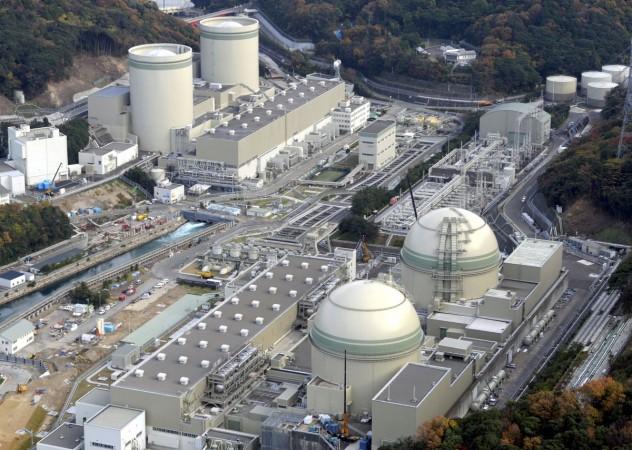
Days before the fifth anniversary of the Fukushima nuclear disaster, a Japanese court ruled Wednesday for the shutdown of two Kansai Electric nuclear reactors in the country, in a win for the residents who had sought the court intervention alleging lack of safety measures.
The Otsu District Court in Shiga Prefecture's capital city Wednesday landed a blow to Japanese Prime Minister Shinzo Abe's bid to restart the nuclear reactors. Abe wanted to restart the reactors to bridge the energy lacuna resulting from the shutdown of multiple nuclear reactors due to safety concerns post-Fukushima. The prime minister has been attempting to move past the use of fossil fuels, the use of which increased post-2011.
The order by the district court has directed the closure of Kansai Electric's No. 3 and No. 4 reactors at its Takahama nuclear plant. The reactors were restarted after being upgraded to comply with the stringent safety norms after the 2011 tsunami led to a meltdown at the Fukushima Daiichi nuclear reactor, the aftermath of which is still being experienced.
Reactor no. 4 was taken offline last month due to a technical glitch, while reactor no. 3 is operational, Agence France Presse reported.
"This court order is not something the company can accept," AFP quoted Kansai Electronic as saying in a statement. The company also said while it would shutdown the reactors, it would appeal the "regrettable" ruling.
With the Kansai Electronic nuclear reactors shutting down, only two others, belonging to Kyushu Electric Power in Kagoshima Prefecture, will remain operational in Japan.
Even though Abe pushes for nuclear energy for Japan, being the prime minister of the only country to be attacked by nuclear weapons, he has publicly condemned the nuclear arms race, reports Bloomberg.
Last year, during an event on the anniversary of the nuclear attack on Hiroshama, Abe had reportedly urged for a world free of nuclear weapons.
On Feb. 29, 2016, three former executives of Tokyo Electric Power Company Inc (TEPCO) were charged for criminal negligence in the Fukushima nuclear disaster case. However, the company seeks to restart two of its nuclear reactors amid the ongoing investigation.








